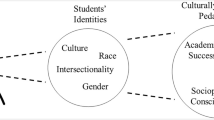Abstract
This chapter describes what I do in my MBSR class, paying particular attention to the characteristics which I believe to be somewhat specific, but not limited, to Korea, remote from the United States, both geographically and culturally. I focus on how to maintain a holding environment with a special emphasis on three areas:
-
1.
Reducing anxiety and tension
-
2.
Establishing the right attitudes for practice
-
3.
Helping participants maintain commitment through group building
The whole chapter is based upon my assumption that the template MBSR curriculum works well in Korea, despite the concern that striking cultural differences between the two countries can greatly influence the teaching and thus the learning outcomes. Although I believe there is no need to make the standard MBSR curriculum change to fit the local culture, I offer some pedagogical “how to’s” I have added over the past 10 years of teaching in order to better meet my participants “where they are,” coming from the distinctive Korean culture characterized by collectivism, high uncertainty avoidance, and relatively high power distance.
Access this chapter
Tax calculation will be finalised at checkout
Purchases are for personal use only
Similar content being viewed by others
References
Ahn, H. Y. (2006). A phenomenological case study of the practicum in Mindfulness-Based Stress Reduction: Insights into mindfulness and its connection to adult learning. Unpublished doctoral dissertation, Teachers College, Columbia University, New York, NY.
Gudykunst, W. B., & Kim, Y. Y. (1997). Communicating with strangers: An approach to intercultural communication (3rd ed.). New York, NY: McGraw-Hill.
Hall, E. T. (1959). The silent language. New York, NY: Anchor Books Doubleday.
Hofstede, G. (1997). Cultures and organizations: Software of the mind. New York: McGraw-Hill.
Kabat-Zinn, J. (2005). Coming to our senses: Healing ourselves and the world through mindfulness. New York, NY: Hyperion.
Kabat-Zinn, J. (1990). Full catastrophe living. Using the wisdom of your body and mind to face stress, pain, and illness. New York: Delta Trade Paperbacks.
McCown, D., Reibel, D. K., & Micozzi, M. S. (2010). Teaching mindfulness: A practical guide for clinicians and educators. New York, NY: Springer.
Nisbett, R. E. (2003). The geography of thought: How Asians and Westerners think differently…and why. New York, NY: Free Press.
Park, M. S. (1994). Communication styles in two different cultures: Korean and American (2nd ed.). Seoul: Han Shin.
Author information
Authors and Affiliations
Corresponding author
Editor information
Editors and Affiliations
Rights and permissions
Copyright information
© 2016 Springer International Publishing Switzerland
About this chapter
Cite this chapter
Ahn, H. (2016). Teaching MBSR in Korea with a Special Reference to Cultural Differences. In: McCown, D., Reibel, D., Micozzi, M. (eds) Resources for Teaching Mindfulness. Springer, Cham. https://doi.org/10.1007/978-3-319-30100-6_7
Download citation
DOI: https://doi.org/10.1007/978-3-319-30100-6_7
Published:
Publisher Name: Springer, Cham
Print ISBN: 978-3-319-30098-6
Online ISBN: 978-3-319-30100-6
eBook Packages: Behavioral Science and PsychologyBehavioral Science and Psychology (R0)




